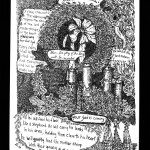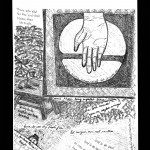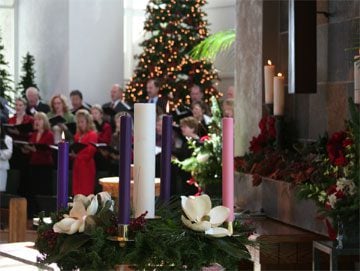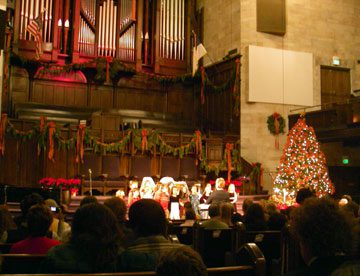LORD, if you kept a record of our sins,
who, O Lord, could ever survive?
But you offer forgiveness,
that we might learn to fear you.
Psalm 130 begins with a desperate cry for help. The psalmist calls out to God “from the depths of despair” (v. 1). We do not know the exact predicament in which the psalmist found himself, but we do know that it was related to his sin: “LORD, if you kept a record of our sins, who, O Lord, could ever survive?” (v. 3). Implied within this statement is an understanding that our sins are so numerous and appalling that we deserve to die because of them.
But that’s not the end of the story. Verse 4 continues: “But you offer forgiveness, that we might learn to fear you.” No matter how much we have sinned, we have hope because God is merciful. He forgives and restores. Notice the unexpected result of our forgiveness: “that we might learn to fear you.” You might think that the experience of forgiveness would lead to taking God for granted. In fact, however, when we truly grasp the impact of our sin, and when we truly realize the wonder of God’s forgiveness, the more we will be drawn to reverence. We will bow before the Lord in humble worship and live our lives in service to him.
In Psalm 130, the fact that God forgives and restores fuels the psalmist’s hope: “I am counting on the LORD…I have put my hope in his word. I long for the Lord more than sentries long for the dawn” (vv. 5-6). The psalm writer yearns for the day when God will forgive, not just his sin, but also the sin of Israel. On that day, “He himself will redeem Israel from every kind of sin” (v. 8). Thus, the psalmist urges Israel to “hope in the LORD; for with the LORD there is unfailing love” (v. 7).
The hope of Psalm 130 is an Advent kind of hope. The psalmist is hoping, waiting, aching to experience God’s forgiveness and redemption. In the season of Advent, we remember how God’s people once yearned for a Savior who would restore their nation. We also get in touch with our own need for forgiveness and renewal. Though our situation is quite different from that of the writer of Psalm 130, we also put our hope in the Lord and long for him. We, too, need him to put our lives back together. We, too, need to experience the new life he alone can give. Thus, Psalm 130 helps us prepare for a rich celebration of the birth of the Savior who will indeed bring God’s forgiveness and redemption to the world…including you and me.
QUESTIONS FOR FURTHER REFLECTION: Take some time to reflect on the reality of God’s forgiveness through Christ. How do you respond to the fact that God forgives all of your sin? How does this truth help you to fear the Lord, that is, to revere him and humbly worship him?
PRAYER: Gracious God, like the psalmist, there have been many times when I cry out to you from the depths of despair, times when I beg you to hear my prayer and pay attention to me. Thank you for being there, for listening, for making yourself known to me.
Yes, it’s true, Lord, that if you kept a record of my sins, I’d be without hope. But in fact you are gracious and merciful. You do forgive. Thus I hope in you. I trust you with my present and my future.
To be sure, there is still more to be redeemed in my life. May your forgiveness and healing hands touch every part of me. May I live each moment out of reverence for you, offering myself to you as a living sacrifice.
Thank you, dear Lord, for the season of Advent, for the opportunity to be reminded of just how much I need you. All praise be to you, Amen.
_________________________________________________
 Would you like to receive a Daily Reflection like this one in your email inbox each morning?
Would you like to receive a Daily Reflection like this one in your email inbox each morning?
Here’s how . . . .
This devotional comes from The High Calling: Everyday Conversations about Work, Life, and God (www.thehighcalling.org). You can read my Daily Reflections there, or sign up to have them sent to your email inbox each day. This website contains lots of encouragement for people who are trying to live out their faith in the workplace. The High Calling is associated with Laity Lodge, where I work.












